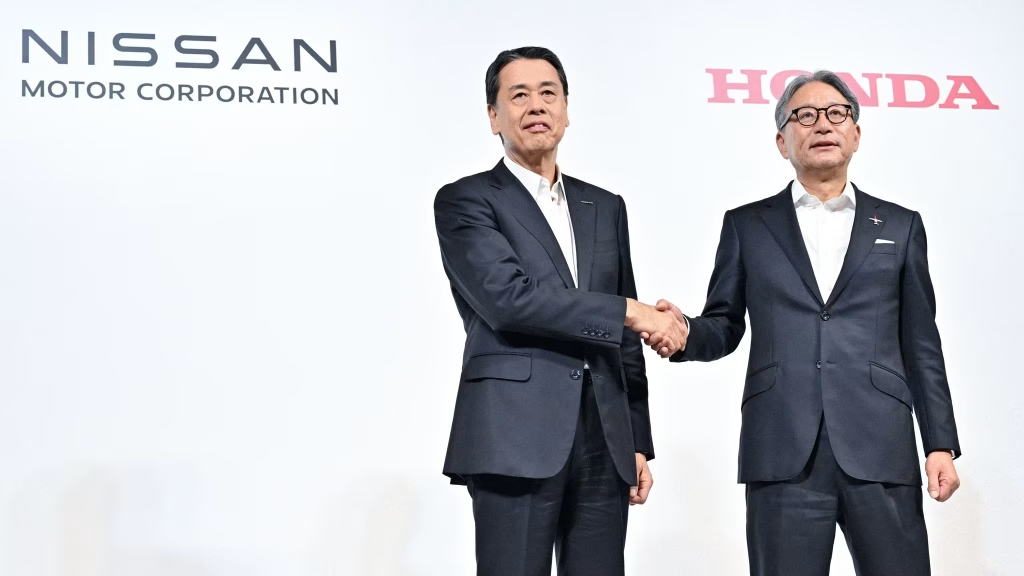Honda and Nissan are contemplating a prospective merger, which could bring together two Japanese automaking titans who have recently fallen on bad times.

The firms said in a statement that they had been in talks, but they provided no details or timeline for when a transaction, if it develops, could be completed. It’s also unclear what shape the potential joint venture may take. Nikkei initially reported the proposed tie-up on Tuesday.
“As announced in March, Honda and Nissan are exploring various possibilities for future collaboration, leveraging each other’s strengths,” the companies said in a statement released Tuesday. “If there are any updates, we will inform our stakeholders at the appropriate time.”
Honda and Nissan have also confirmed to CNN that Mitsubishi is involved in these exploratory negotiations, adding a potential third big Japanese vehicle maker to the mix. Mitsubishi has not responded to requests for comment.
Honda and Nissan announced a partnership for electric vehicles in March, followed by a collaboration on battery technology in August. However, they could benefit from strengthening their bonds because both have encountered obstacles this year.

Both firms, like many non-Chinese manufacturers, have suffered in the once-promising China market, the world’s largest automotive market. Chinese consumers had previously gravitated to global brands but have now turned to homegrown brands with higher perceived value in the country.
The Chinese government has also offered incentives to encourage customer adoption of electric vehicles and plug-in hybrids.
Although both firms provide EVs and plug-in hybrids—Nissan, in particular, was a pioneer in EV technology—Chinese brands such as BYD have surpassed their technology and are more affordable.
Nissan has likewise struggled since former CEO Carlos Ghosn fled Japan for Lebanon. Ghosn was arrested in Tokyo in 2018 on charges of financial malfeasance, and Nissan sacked him. Ghosn has continually disputed the claims.
His removal upset the powerful automaking alliance of Nissan, Renault, and Mitsubishi. Renault, once the world’s largest automaking partnership, has significantly reduced its ownership position in Nissan, weakening the Japanese carmaker.
Nissan reported that its operational income decreased by 90% between March and September compared to the same time last year.
Meanwhile, Honda, which is about five times the size of Nissan, is facing similar issues. The corporation intends to sell solely zero-emission vehicles in major markets by 2040. However, the change has been slow, with relatively low petrol costs, insufficient charging infrastructure, and greater competition reducing demand for EVs in the United States and Europe.


